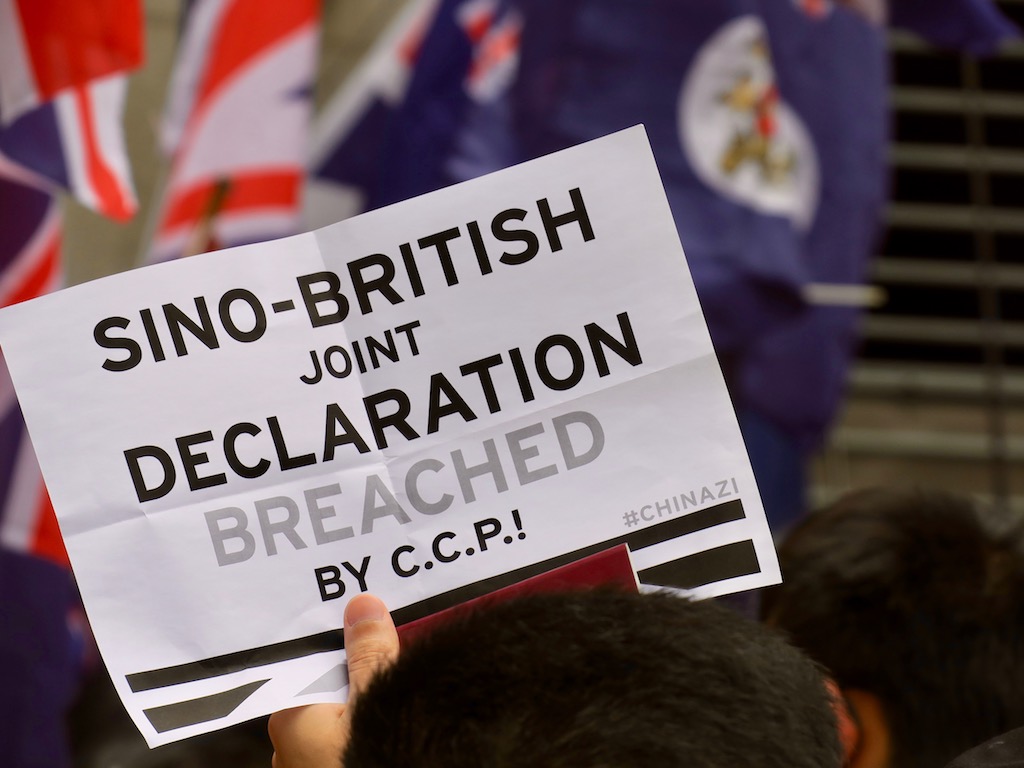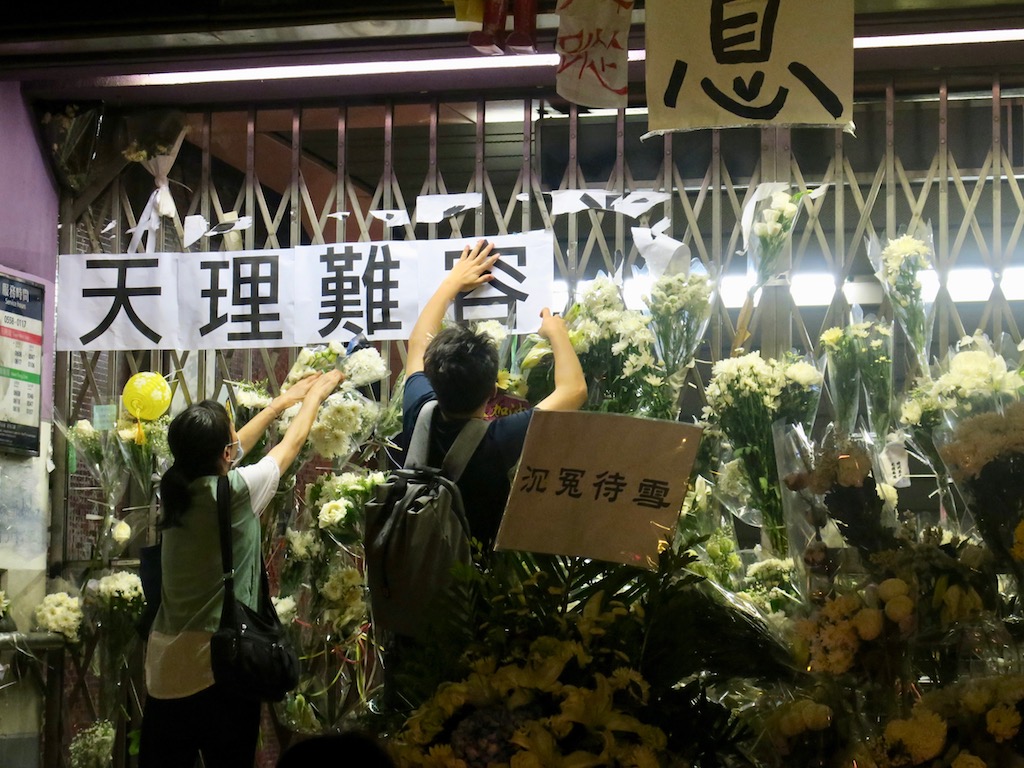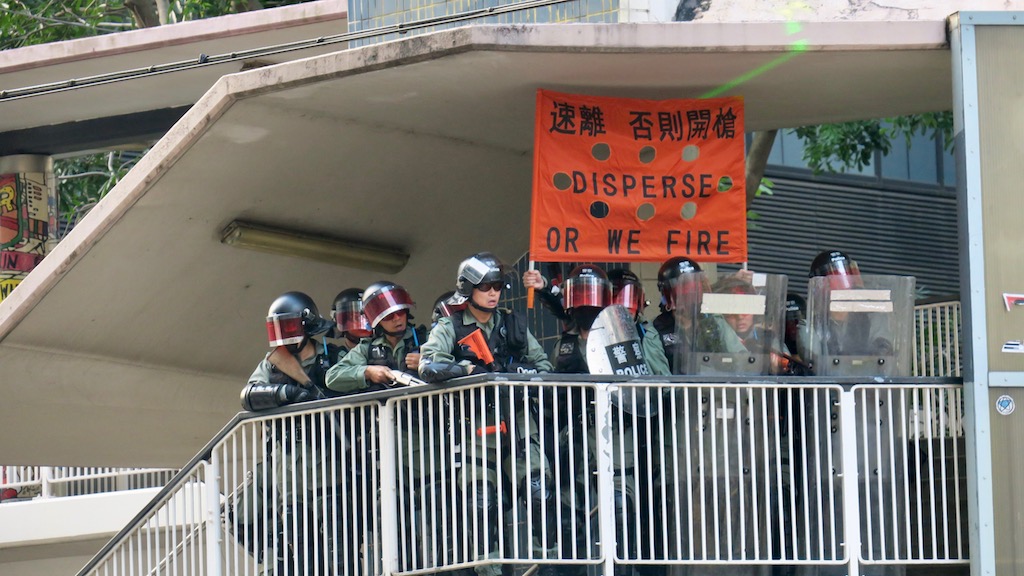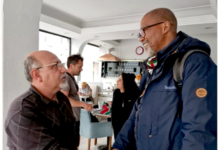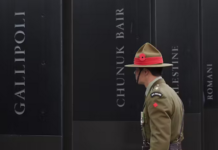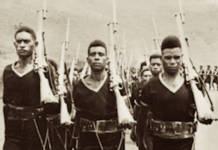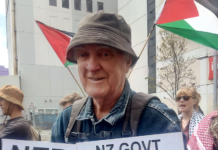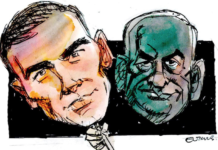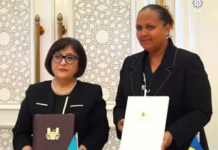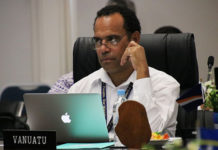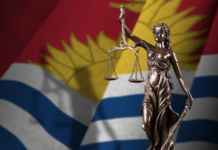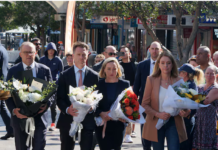A special multimedia report by Hugh Bohane in Hong Kong
As China celebrated the 70th anniversary of the birth of its Communist Party on October 1 with an extravagant military parade, down south in Hong Kong pro-democracy protesters continued their struggle to have all of their five demands heard. This was met with brute force by Hong Kong’s “raptor” riot police, resulting in serious injuries to journalists and protesters.

Veby Indah, a 39-year-old Indonesian journalist, permanently lost the sight in one of her eyes last Sunday while filming. Police shot a rubber bullet into a group she was standing beside while live streaming.
Other local and foreign journalists have made complaints of being physically harassed by the police, something which the Hong Kong Journalists Association (HKJA) has strongly condemned.

For the first time since the protests began four months ago, two protesters have been shot with live ammunition in recent days and more than 1400 people have been arrested since June. The first protester to be struck was an 18-year-old male protester who was shot in the chest by a riot police officer at close range, narrowly missing his heart on October 1. He is in a stable condition but has been charged with one count of rioting and two counts of assaulting a police officer.
The second protester was a teenage boy aged just 14, who was shot by a plainclothes police officer on the evening of October 4. In a night of continued mayhem, Chinese banks and MTR stations were firebombed, which prompted metro lines to be shut down and plunged the city into further chaos.
Recently, I spoke to a well-spoken young 20-something protester named *Dickson attending an anti-police brutality protest at Prince Edward station in Mong Kok.
“A lot of the protests are banned, which is a big problem because protesting is a basic right that Hong Kongers have or used to have. The way that the Hong Kong government and Beijing is handling this isn’t any different to how they have handled things for the last 70 years. In previous times, most protests fail and after awhile the movement dies off and then things get worse. It’s one country going against a special administrative region, we don’t have much we can do as citizens. At the same time, its seems that the protest movement has this time caught a lot more attention internationally,” said Dickson.
Sheer desperation
At the same protest a middle-aged lady named *Mary approached me with a voice of sheer desperation, “We are very afraid of the Hong Kong police and the CCP are hiring secret police from mainland China and they want to arrest our Hong Kong people. We want to see the CCTV footage from this [Prince Edward] metro station to find out what really happened on August 31,” referring to a prior incident, when police were accused of seriously assaulting protesters and allegedly covering up the evidence.
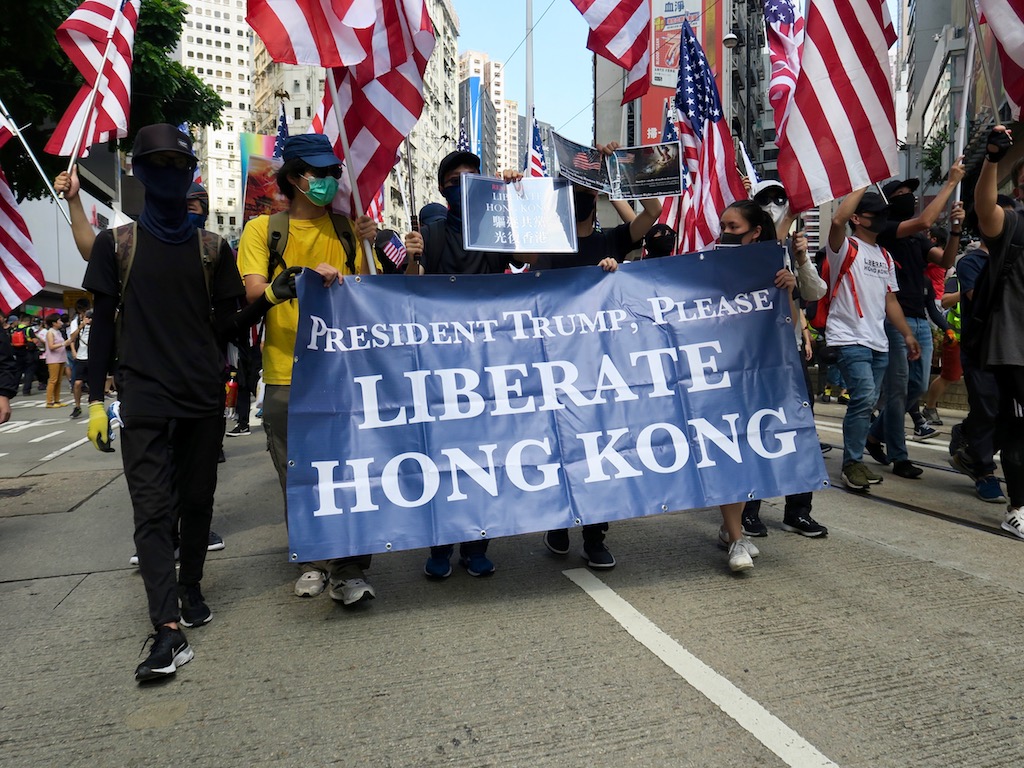
Earlier that day, I had bumped into a nurse named *Ally who was attending a weekend protest at The British Consulate-General building. After exchanging contact details, she later emailed me thanking us for covering the story, something that multiple Hong Kong citizens have done during our time in Hong Kong.
“I’m a registered nurse working in the department of surgery in one of the hospitals in Hong Kong. Amnesty International reported that the Hong Kong police assaulted a protestor after they were arrested. This is true. One protester was admitted to my ward after he was arrested, his CT report showed a splenic laceration and a fractured nasal bone. We found multiple abrasions over his face and body, there was a lot of bruising which is consistent with being beaten by baton.
“These were noted to be seen all over his body, the laceration on his leg needed to have sutures. I couldn’t believe that the patient got such an injury before he was arrested? As healthcare professionals, all of us felt very shocked and angry after we approached the patient. According to the patient, he said the police took him to the toilet and used their fist to attack his abdomen. They also used some hard object to beat his back and beamed a laser directly into his eyes. I can’t believe they are the police and not triads,” she wrote, along with a screenshot from a text message conversation with one of the doctors on duty at the time.
This escalation of events comes as Chief Executive Carrie Lam adopted the Emergency Regulations Ordinance to introduce a ban on protesters wearing masks, which came into effect on October 5, further pouring more fuel onto the protester’s fire. The repressive law was enacted in the 1920s by the then British colonial power and it was last used in 1967 to quell a communist riot that spilled into Hong Kong from the mainland during the Cultural Revolution.
Communists organised demonstrations targeting police and planted bombs in the streets and causing a period of turmoil. The Emergency Regulations Ordinance can give the government tremendous power to seize assets and search and arrest anyone they chose. It was not difficult for Lam to put this in place due to the fact she has a majority of seats in the Legislative Council.
Growing fears
On top of that, there are still growing fears among some citizens that the PLA could be readying themselves to take matters into their own hands. Earlier in the week, Reuters released an investigative report estimating that (according to diplomats), there might be as many as 12,000 troops already on the ground in Hong Kong.
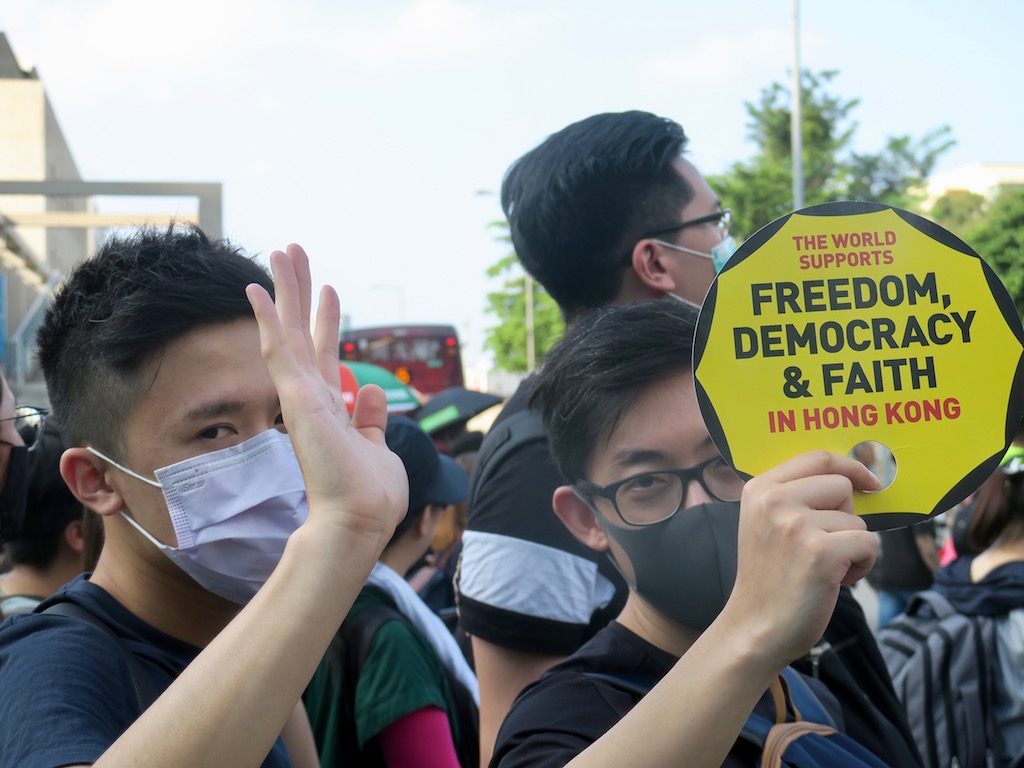
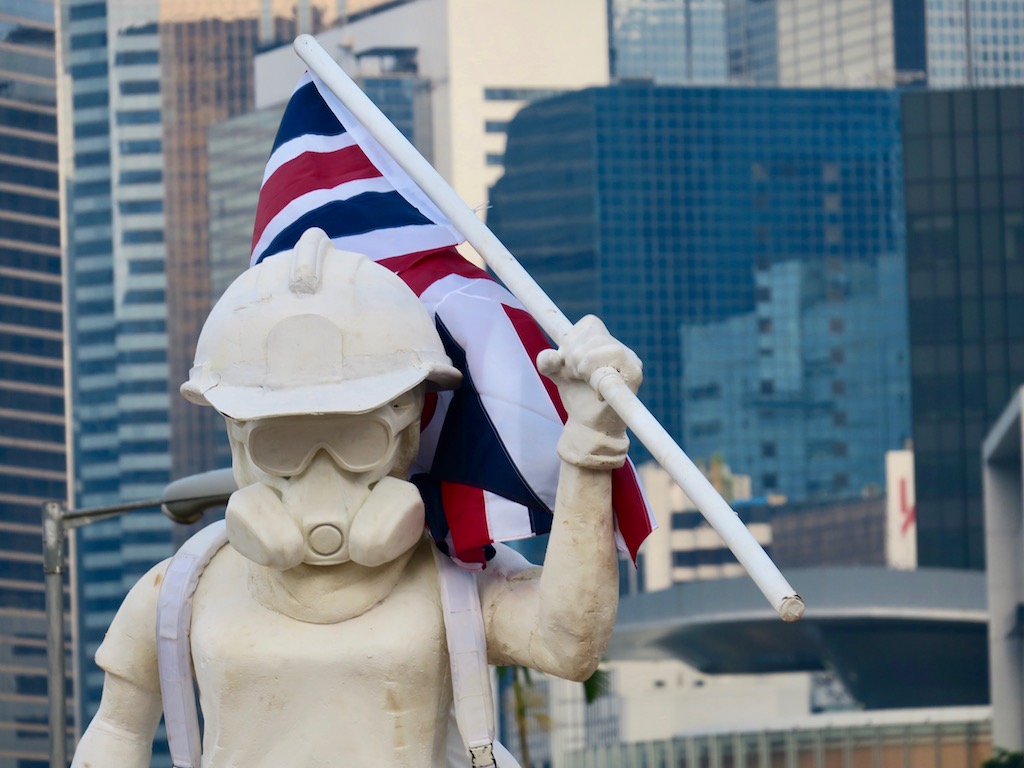
Shortly after the mask-ban was announced we spoke with Emily Lau, a former member of the Hong Kong Legislative Council.
“We are at a very dangerous stage now. The pro-Beijing political parties and business people supporting Carrie Lam are very ignorant and unwise to push Hong Kong to the brink. This law about banning face masks is so provocative and I think it is going to be very useless. The whole procedure is wrong. They did not do any consultation. They used the Emergency Regulations Ordinance to give them the power to enact legislation without going through the Legislative Council properly,” Lau told me.
I asked Lau what we can expect to see from the protesters in response to this new law.
“Many protesters have taken part in illegal assemblies anyway and they were not afraid, so they are not going to be afraid of this law. They will have to build another ten prisons, it’s laughable.
I think many groups will be up in arms, even doctors because they wear the masks to protect themselves. The people are not going to take it lying down and many young people think they don’t have any future anyway and they will go and die, which is very sad. They are very emotional and so the thing to do is to help them to calm down not aggravate the situation. This can not go on and nor should it be allowed to go on. Otherwise you will see Hong Kong as once a safe, vibrant and free city suddenly decline, and also if that’s the case, we will no longer be a very good international business and financial center.”
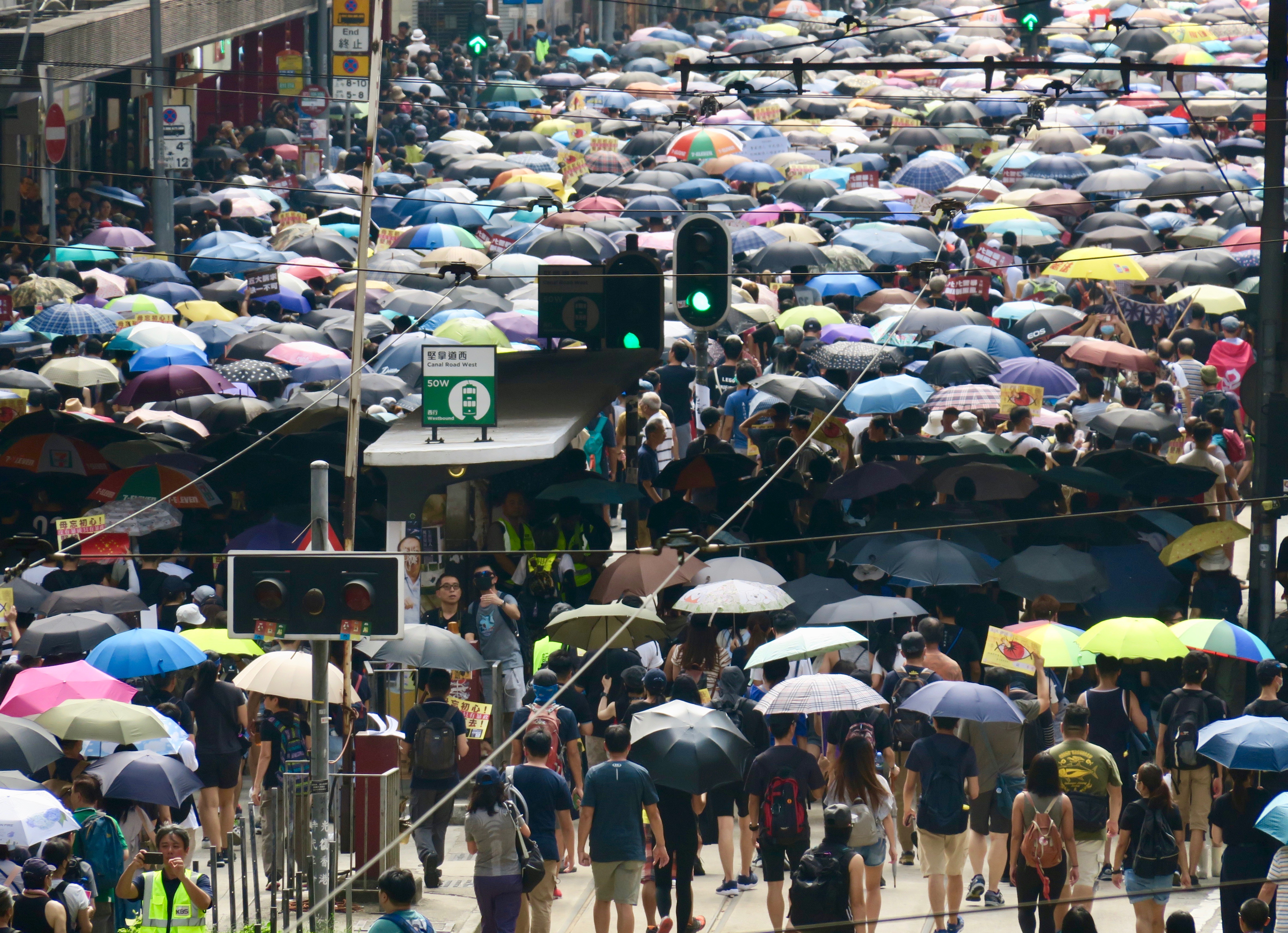
Election climate
Next Month is the district council election and the DAB (pro-Beijing party) has already suggested it should be postponed (perhaps indefinitely) until the climate calms down.
“They can have an election in Afghanistan, so why can’t they have one here? But of course they are very afraid they will lose and lose very badly. That means not only will they lose their seats in the the district council, which have no power, but our system is such that the district councilors elect 117 members of the chief executive election committee and the way this election is carried out is that the overall winner takes all. So whoever gets a majority in the district council will get all the 117 seats in the chief executive election committee. So if they do very poorly they are going to hand over 117 seats to the pro-democracy camp. But first let’s see what happens in the coming days with this mask ban…”
